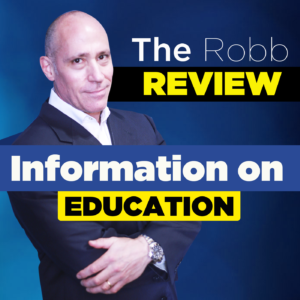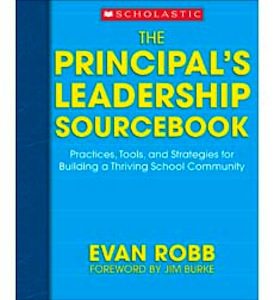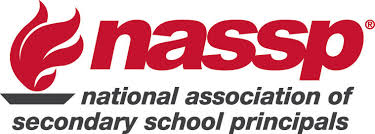
I’ve always questioned the status quo as far back as my first year of teaching. There was an abundance of negative talk about the administration, other teachers, and how students were unprepared for learning. Most of it occurred in the faculty lounge, and I soon abandoned that room because the negative atmosphere affected me and my attempts to maintain a positive outlook.
As a new teacher, it’s tough to be surrounded by teachers who don’t want professional development or complain about new initiatives. For me, the greatest challenge was feeling like an outsider. Negative attitudes don’t build community and make it very challenging many teachers and for the principal to build collective efficacy among staff.
Negative attitudes and unproductive teaching practices can be powerful; they can take hold of a school’s culture, spread like a virus, and affect teaching and students’ learning. Once I became a principal, I made a commitment to work diligently to stop practices that have continued so long. Some teachers accept them as tradition or offer rationales such as: “We’ve always done it that way here.” or It’s worked for me, it should be good enough now.” The question that begs answering is, What are these practices and how can we can we stop them?
No doubt, they need to go. To accomplish this means raising your awareness of practices that make no sense. It won’t happen after one try. Entrenched ideas, like those listed below, require vigilance on your part. Don’t give up. When you address them, Always. Remain. Positive. To maintain a positive stance, I’ve included a section called “Changeover” which offers suggestions for transforming negative practices in your school to positives.
Resistance to Change: Resisting change runs a wide gamut. It can be refusing to adopt research-based best practices, being unwilling to try collaborative learning, refusing to integrate technology, attending professional learning in body but not in mind and spirit. Beliefs and statements among staff enable you to spot resistance. Listen for comments such as, “This, too, shall pass,” or “It was good enough for me, it should be good enough for these students.” Some staff have feelings of entitlement: “Families love me so I can do what I want.”
Changeover: Extend invitations to teachers to participate in learning that can bring meaningful changes to teaching practices. Accepting an invitation means a teacher has made a commitment. Have those involved in change bring artifacts and lesson results to team and department meetings and share. Enthusiasm and good news can spread; give yourself and your staff the gift of time.
Unconditional Defenders: Some staff members feel that the principal needs to defend them to a parent or central office administrator even if the teacher’s actions are indefensible. When a staff member makes an egregious error, you need to take positive action. This might make you unpopular, but as you work to support the person, you can transform this attitude.
Changeover: First, take the time to listen to the staff member and those affected by his or her actions. Help the staff person understand the mistake and discuss ways to avoid repeating it. Be part of the reflective process through meaningful conversations and show staff what kind of support helps them grow and improve.
The Count Down Mentality: In many schools, at the end of the first day, you can hear staff say, “Only 179 school days left.” Some teachers even keep a countdown calendar. This creates a mindset among staff that teaching is a job, not a calling.
Changeover: First, if you hear these comments, start a conversation immediately. Make it known that everyone is at your school to help and support children’s learning and emotional wellbeing. Revisit this mindset at team and department meetings. Invite teachers to share how they have helped move a child forward and continually point out how the teachers sharing illustrates why we come to work each day.
Too Much Tolerance: Beware of condoning unprofessional behaviors among staff and central office administrators in order to cultivate an alliance. If doing this is against your beliefs and values, then you will confuse staff because they won’t know what you truly stand for and value. Moreover, if your words and actions change with each situation, you give staff the license to do the same.
Changeover: Take a deep look at yourself and have an in-the-head, reflective conversation. Make sure you understand what you believe and value as a principal and avoid compromising these beliefs. Always keep in mind why you are a principal—to advocate for and support children and their teachers.
Unprofessional Dress: If your school has a dress code for staff and students, then both groups need to follow it. A teacher not following the dress code will have difficulty discussing a breach of dress code with a student. Also, staff should care how they present themselves to students and colleagues.
Changeover: Find out why a staff member continually ignores the school’s dress code. Set aside time to meet and have conversations about this. Help the person see how his actions affect the morale of other staff members and students. Then, make it clear that part of the job is abiding by the dress code with a goal to look professionally appropriate for students and staff.
Excuses, Excuses: Some staff always have a reason for being late to bus or recess duty, or for not standing in the hall when classes change. This outlook can prevent staff from embracing a growth mindset as they rationalize their decisions, attitudes, and behaviors.
Changeover: Keep a list of excuses made and then discuss the list with the teacher. Help him or her understand how not appearing or being tardy for school duty, affects the entire school community. For change to occur, you will have to help a person understand the whys.
Closing Thoughts
The practices I’ve discussed need to stop because each one hurts students and your school community. My challenge to you is to be part of the solution by taking the time to have meaningful, honest, and supportive conversations with staff to help them understand why a practice, behavior, or words aren’t acceptable. Your students, teachers, and school community deserve it.

Check out our podcast on things that need to go in education!
Check out my book, The Principal’s Leadership Sourcebook

![]()













